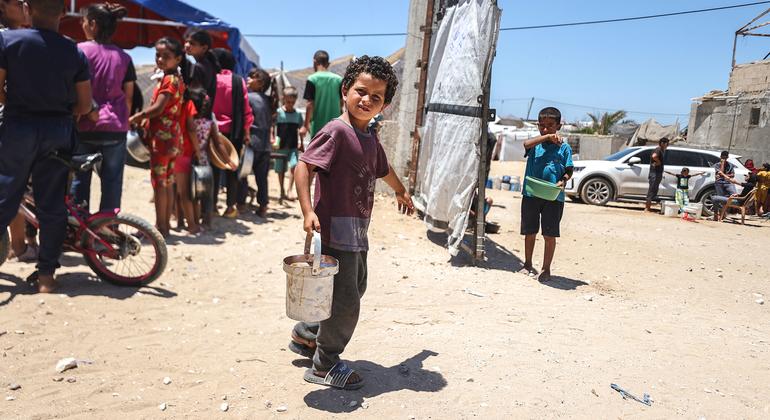The report highlighted the concerning issue of millions of children under five around the world struggling to access nutritious and diverse diets essential for their developmental growth. This problem has been exacerbated by the record-high food prices and living costs in the aftermath of the COVID-19 pandemic. UNICEF Nutrition Specialist, Harriet Torlesse, expressed alarm at the fact that one in four children globally are surviving on extremely poor diets, consuming only two or fewer of the major food groups. This lack of adequate nutrition is particularly worrisome in countries like Afghanistan, where children may only be consuming bread or milk in a day, without essential fruits, vegetables, and protein.
The report revealed that 181 million children worldwide are experiencing child food poverty, with 65 percent of them residing in 20 countries. The majority of these children, about 64 million, are in South Asia and 59 million are in Sub-Saharan Africa. Income poverty is a significant factor in nearly half of all cases of child food poverty, but other issues such as inadequate food systems, unaffordable nutritious foods, and lack of positive child feeding practices also contribute to the crisis. Countries like Burkina Faso have shown that progress is possible, as they have successfully reduced their levels of child food poverty through deliberate efforts to improve the availability of local nutritious foods.
In conflict-affected regions like Somalia and Gaza, the situation is particularly dire, with more than half of children in Somalia experiencing child food poverty and nine out of ten children in Gaza facing high levels of food poverty. The report emphasized the devastating impact of conflict and restrictions on families’ ability to provide for their children’s food needs, putting them at risk of life-threatening malnutrition. Despite these challenges, there are instances where countries have made significant strides in reducing child food poverty, demonstrating that with the right actions and interventions, progress can be achieved even in low-income countries.
UNICEF has called on governments, development partners, and humanitarian organizations to take urgent action to address child food poverty. The organization urged for measures to make nutritious foods more accessible to young children, implement social protection systems to alleviate income poverty, and utilize health systems to deliver essential nutrition services to support children. It emphasized the importance of prioritizing the elimination of child food poverty as a policy imperative in order to achieve the sustainable development goals related to malnutrition. By working together and taking decisive action, it is possible to ensure that all children have access to the nutritious diets they need for their healthy development and well-being.









